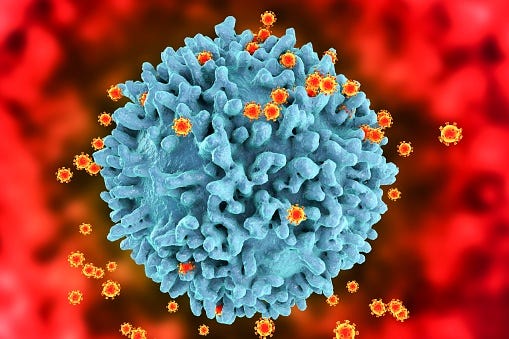
NEW YORK (WCBS 880) -- As New York City commemorates World AIDS Day, the Department of Health said Wednesday that there has been even more progress in ending the HIV epidemic.

The 2020 HIV Surveillance Annual Report shows 1,396 people were newly diagnosed with HIV in New York City in 2020, a 21% drop from 2019 and a 76% decrease from 2001.
“The decline in new HIV diagnoses marks another milestone in our long fight against the HIV epidemic in New York City and represents a model for the nation,” said city Health Commissioner Dr. Dave Chokshi. “While the fight against HIV has become more challenging in the past two years due to the COVID-19 pandemic, we remain focused on our efforts to reduce stigma, discrimination and inequities that put people at risk of HIV infection, particularly people of color."
HIV transmission saw declines in nearly all categories, including in men, women, and transgender people; Black, Latino, White, Native American and Asian/Pacific Islanders; and all age groups 13+.
Health officials said they have estimated the number of new HIV infections per year, and figures on that metric declined 29% from 2016 to 2020.
But health officials also noted “inequities” in some communities. Of all cisgender and transgender women newly diagnosed with HIV in 2020, 92% were Black or Latina, while that number was 79% among cisgender or transgender men.
Nearly half of all New Yorkers newly diagnosed with HIV last year lived in neighborhoods with high poverty, officials said.
The effects of COVID-19 were heavily highlighted in the report. Officials said reduced HIV testing and lab services were a contributing factor in new HIV cases.
“In 2020, 40% of people newly diagnosed with HIV in New York City were virally suppressed within three months of diagnosis, down from 53% in 2019,” the report said.
The report was released a day after Mayor Bill de Blasio announced city-recognized Overdose Prevention Centers, which officials called "safe places for drug users to receive medical care" and more.
“The city supported one of the first syringe exchange programs in the country to reduce HIV transmission. OPCs and other harm reduction interventions that promote safer practices are key strategies to prevent the spread of HIV and hepatitis,” officials said.


